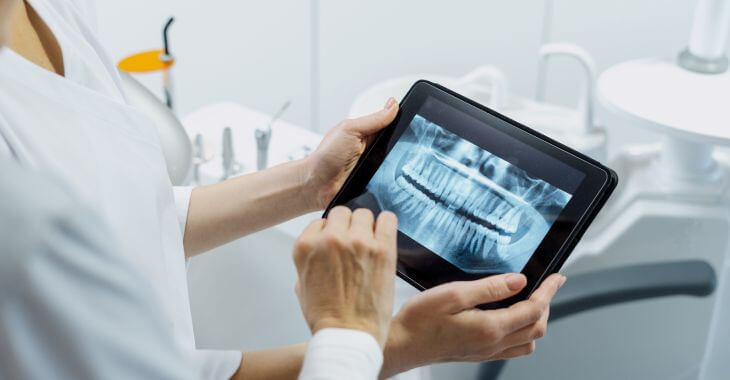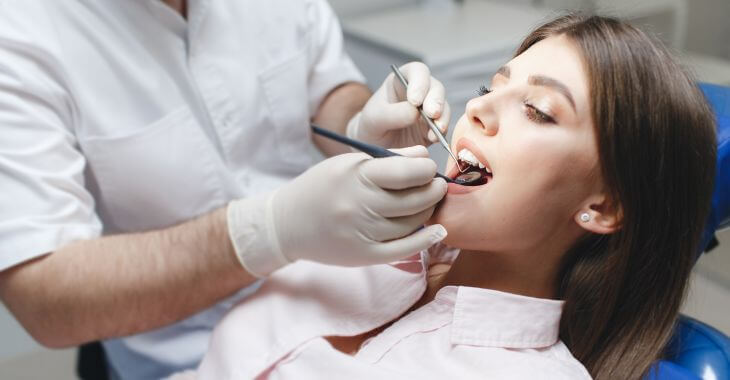What Happens If You Swallow a Tooth?

Swallowing a tooth can feel scary, but in most cases, it’s not dangerous. Teeth are small, hard, and usually pass through your digestive system without causing harm. However, knowing what happens inside your body, the risks, and the signs that require medical attention can give you peace of mind.
What Happens If You Swallow Your Tooth?
When you swallow your tooth, it typically travels down the esophagus into your stomach. Your body treats it like any other small, hard object. From your stomach, the tooth usually passes into the intestines and exits naturally in your stool within a few days.
Your digestive tract is quite efficient at moving foreign objects along, and teeth are not large enough to cause problems in most healthy adults and children.
What Happens If You Swallow a Tooth in Your Sleep?
Swallowing a tooth while asleep can be a little more concerning. The biggest risk during sleep is not swallowing but aspirating the tooth — meaning it enters your airway or lungs instead of your stomach.
If this happens, it can lead to choking or even a lung infection called aspiration pneumonia. Symptoms like persistent coughing, difficulty breathing, or chest pain after suspected tooth inhalation require immediate medical attention.
My Tooth Broke and I Swallowed It — Should I Worry?
If your tooth broke and you accidentally swallowed it, the situation is usually manageable. Broken tooth pieces might be sharp, posing a very slight risk of scratching or damaging the lining of the digestive tract.
Still, serious injuries are rare. You should monitor for any unusual symptoms like sharp stomach pain, vomiting, or signs of bleeding. If you experience any of these symptoms, contact a healthcare professional promptly.
Can Swallowing a Tooth Cause Damage?
In rare cases, swallowing a tooth can cause minor complications. Teeth with sharp or jagged edges could irritate or even slightly tear parts of the gastrointestinal tract. However, the risk is low. Most swallowed objects, including teeth, pass through the system without causing any harm.
If a swallowed tooth causes a blockage or small tear, it might result in symptoms like severe abdominal pain, vomiting, or blood in the stool, which would require emergency care.
Is It Common to Swallow a Tooth?
Yes, swallowing a tooth is more common than you might think. It frequently happens to young children losing baby teeth or to adults who suffer dental trauma. Children often swallow baby teeth without realizing it.
In sports, accidents, or falls, adults can knock out and inadvertently swallow teeth. The American Dental Association reports that dental trauma accounts for about 5 million knocked-out teeth annually in the United States.
What to Do if You Swallow a Tooth
If you’ve swallowed a tooth, the first step is to stay calm. In most cases, no immediate action is needed beyond monitoring your symptoms. Here are some simple steps to follow:
- Stay hydrated to help your digestive system function smoothly.
- Eat high-fiber foods like fruits, vegetables, and whole grains to encourage natural movement through your intestines.
- Avoid laxatives unless directed by a physician.
- Watch for any unusual symptoms over the next few days.
Signs You Should See a Doctor
While most cases resolve without any issue, you should seek medical attention if you experience:
- Persistent or severe stomach pain
- Vomiting
- Difficulty swallowing or breathing
- Blood in your stool or vomit
- High fever
If any of these symptoms occur, it could signal a problem that requires urgent care.
What Happens to the Tooth Inside Your Body?
Most swallowed teeth pass naturally within 24 to 72 hours. Since teeth are not digestible, your body does not absorb them. They travel intact through your digestive tract and exit with your bowel movements.
If you want to be sure the tooth has passed, you can check your stool or consult your doctor for an X-ray, especially if symptoms develop.
Risk Factors for Problems After Swallowing a Tooth
While rare, complications are more likely in certain groups:
- Children: Their smaller intestinal tracts make them slightly more vulnerable to blockages.
- Older Adults: Reduced digestive motility can slow down passage.
- People with Digestive Disorders: Conditions like Crohn’s disease can increase the risk of tears or blockages.
- Sharp or Broken Teeth: Jagged edges increase the risk of tissue damage.
If you experience symptoms, doctors might perform an X-ray to locate the tooth. In rare cases where the tooth doesn’t pass naturally or causes damage, an endoscopic procedure may be used to remove it. Surgery is extremely rare and reserved for severe complications like intestinal perforation or blockage.
Tips to Avoid Swallowing Teeth
Prevention is always better. Here’s how to lower your risk:
- Visit your dentist regularly to catch loose fillings, crowns, or cracked teeth.
- Handle loose baby teeth carefully.
- If you or your child has a wiggly tooth, avoid rough play at bedtime.
- Consider wearing a mouthguard during sports to prevent dental trauma.
- Teach children not to wiggle their teeth excessively with their tongue.
My Tooth Broke and I Swallowed It: Dental Care Afterward
Even after the swallowed tooth safely exits your body, don’t ignore your dental care. A broken tooth in your mouth can lead to infections, sharp edges, and further damage. Visiting your dentist ensures proper treatment, whether it’s smoothing sharp edges or planning restorative procedures.
Bottom Line: Stay Calm, Stay Safe
In most situations, swallowing a tooth is not dangerous and resolves without medical intervention. However, knowing what to look for and when to seek help keeps you protected. Always follow up with a dentist to address any underlying dental issues and to keep your smile — and your health — strong.

Need Dental Help After an Accident?
If you’ve swallowed a tooth or suffered dental trauma, don’t wait. Contact your dental professional to protect your health and preserve your smile for the future!
The information provided on this website, including text, graphics, images, and other materials, is intended solely for informational purposes and should not be used as a substitute for professional medical advice, diagnosis, or treatment.




)